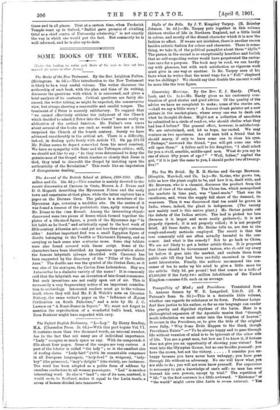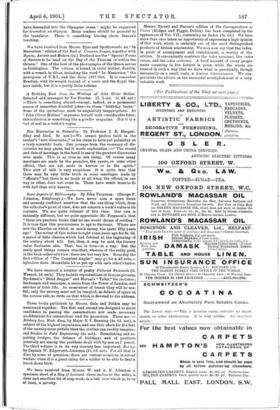Tranquillity of Mind ; and Providence. Translated from L. Anntens
Seneca by W. B. Langsdorf, Litt.D. (G. P. Putnam's Sons. 3s. 6d.)—This is a desirable little volume, whether one regards its substance or its form. Professor Langs. dorf does justice to his author, so far as our language can render the gravity and dignified rhythms of the Latin. Here is a philosophical expansion of the Apostolic maxim that "through much tribulation we must enter into the kingdom of heaven." It occurs in the Providence, or, to give the title of the original more folly, "Why Some Evils Happen to the Good, though Providence Exists " :—" To be always happy and to pass through life without vexation of mind is to be ignorant of the other side of life. You are a great man, but how am I to know it, if fortune does not give you an opportunity of showing your virtue ? You went into the Olympian Games, but no one besides yourself you have the crown, but not the victory I consider you un- happy because you have never been unhappy; you have gone through life without an adversary. No one will know what you are able to do ; you will not even know yourself. For experience is necessary to get a knowledge of one's self: no man has ever learned his own powers, except by trial." The repetition of "life " in the first sentence is a little awkward. "Existence" or "the world" might serve (the Latin is rerum naturae). "Yea have descended into the Olympian arena" might be suggested for descendisti ad Olympia. Many readers should be grateful to the translator. There is something bracing about Seneca's teaching.







































 Previous page
Previous page